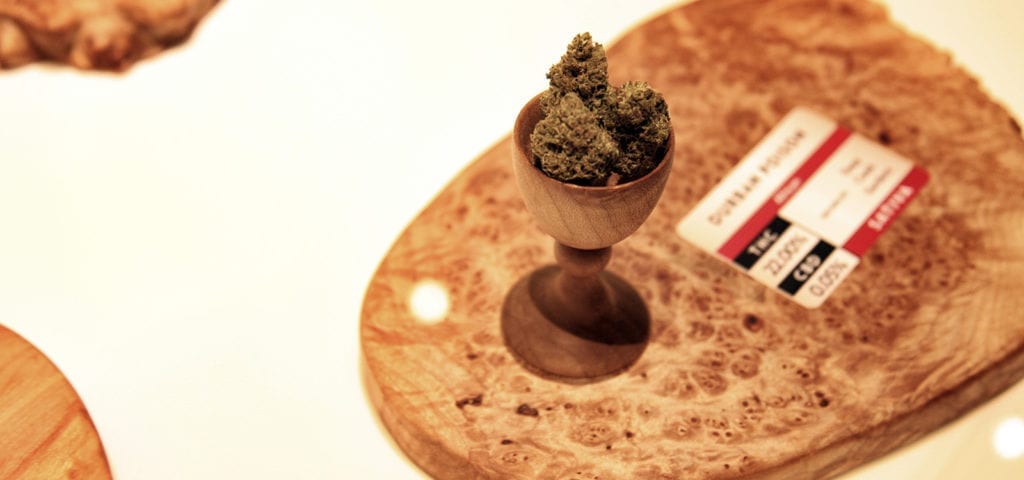Editor’s note: This is the second installment of a three-part series about cannabis taxes and the tax hurdles faced by marijuana business owners. This article contains hypotheses that haven’t yet been proven by case law; we highly recommend consulting your accountant before adapting any of these theoretical strategies.
If you haven’t yet, check out Part 1 before reading further. Stay tuned for Part 3, coming next week!
In the first part of this series, I introduced Section 280E and various Tax Court Cases that have left the door open for mitigating your tax liability as a cannabis business owner.
One way to alleviate federal taxation is through cost of goods sold (COGS). According to the Tax Court:
“Taxpayer trafficking in controlled substance determines COGS by using applicable inventory-costing regulations under Code Section 471 as they existed when Section 280E was enacted. And IRS Examination or Appeals may change to inventory method for that controlled substance when the taxpayer currently deducts otherwise inventoriable costs from gross income.”
What that means is that instead of using the favorable way to calculate COGS in Section 471, we must go back to 1982, when Section 280E was enacted. Van Pickerill & Sons Inc. v. United States stated that when the use of inventories is necessary to determine the income of a taxpayer, the taxpayer must use the best accounting practice to determine the amount of income (Section 471(a)).

Despite the use of the word “best,” multiple accounting methods may satisfy the best accounting practice requirement for any given business. The court and the IRS are caught between what is legal under state law, when the exact same thing is illegal under federal law.
In Jason R. Beck v. Commissioner, the Tax Court ruled that although the COGS were deductible to marijuana businesses, the cost of marijuana seized by federal authorities could not go into the calculation of COGS. Even though marijuana is legal in a state, federal government law enforcement agencies can raid legal state marijuana facilities, and, in the Beck case, the court said these amounts are not deductible.
Right now, many CPAs and EAs are loathe to sign a tax return that respects a non-trafficking trade or business. There was a famous paper written for accountants which concluded that the tax law makes it difficult to establish a second trade or business and therefore creates a challenge in treating that business as non-trafficking for purposes of IRC § 280E.
Appearing to follow the Tax Court’s lead in Olive, the paper used a multi-factor analysis from the Trupp case applying the rules of IRC § 183 (relating to hobby losses) to the question. The paper did not, however, consider accounting method cases under IRC § 446, which also address the issue and are likely in some instances to be more favorable to the taxpayer.
Added to that is the misinformation spread a few years ago that people like me, when helping those in the cannabis industry, are in danger of losing their license for aiding and abetting a drug dealer.
Common Section 280 strategies
As I mentioned in my first article, the first approach derived from Californians Helping to Alleviate Medical Problems, Inc. (CHAMP) v. Commissioner. In this Tax Court Case, the California-based marijuana dispensary provided marijuana to its patients, but also provided non-cannabis services, including counseling and caregiving services for its patients. This allowed the company to fully deduct the expenses associated with those practices.
A common and basic strategy for a dispensary is to offer another service alongside its dispensary. You then allocate expenses between the dispensary and the other activity. However, what was learned in the Olive v. Commissioner case is that you simply cannot throw two things together and say that they are separate businesses under one roof.
I have heard of a strategy whereby a dispensary would sell cannabis and also sell hats and t-shirts. The allocation of the expenses were 80 percent t-shirts and hats, to 20 percent dispensary. But, unlike that sort of arrangement, you need a business that compliments a dispensary. For instance, medical cannabis and caregiving go together. Recreational marijuana and food go together. Then you have to make sure you are not allocating so much more on the non-cannabis side of the business that it ceases to make sense — then the question would arise: why do you have a dispensary at all?

Another way to look at it
Before going further, I want to mention that this idea does need some work and should not be considered bulletproof.
If you are in the medical cannabis industry, why not charge a monthly fee for caregiving services commensurate with the patient’s diagnosis? You could offer different packages like Silver, Gold, and Platinum. If the patient is prescribed a potent and more expensive strain of cannabis, you simply charge them more for the caregiving. The cannabis you just give away alongside the caregiving services.
Before you think that I’ve lost my mind, stay with me. You are providing caregiving services as a way to deduct your business expenses. What does the patient want most of the time? They just want the cannabis. So, you enter into a contract with the patient that says you will provide these caregiving services, charge them a fee, and give them the cannabis for no charge.
Will the patients take part in the caregiving services? Some will, but for this to work, you would have to make a requirement that the patient attend so many appointments to get their cannabis. They can simply do a certain thing every month when they come to pick up their supply and that would fulfill the contract.
What do you need to employ this method? A good accountant that understands the strategy, an attorney that can write the caregiving contracts, and an attorney/accountant team that can offer ongoing consulting services.
If we go back to the successful CHAMP Tax Court Case, this was their basic concept, but I tweaked it a little bit. They were charging for both the cannabis and the caregiving expenses. You are charging more for caregiving expenses than what would cover the price of the cannabis, but you are effectively giving away the cannabis. Conceivably, you are no longer stymied by Section 280E because you aren’t selling an illegal Schedule I drug; you are selling caregiving expenses and just giving away the cannabis.
You would still have to have a license as a dispensary. That wouldn’t change. However, depending on how your state has written the cannabis laws, this strategy may get you out of the oppressive state taxes on cannabis. Remember that you aren’t selling it. You are offering a caregiving service that may or may not include free cannabis.
NOTE: there is NO case law that supports this. This is simply one person looking at caregiving, cannabis, and other therapies from a holistic medicine approach.
Will you be audited?
Any strategy you employ to avoid Section 280E will open you up to scrutiny by the IRS. You need good professional help in employing the strategies listed in this article.
Get daily cannabis business news updates. Subscribe
End
